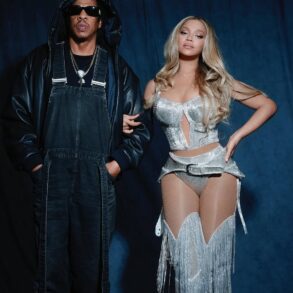The Internationally acclaimed hip-hop artist Supaman visited Corvallis Schools on Tuesday with a message of making positive choices and taking pride in cultural heritage.
Supaman captivated high school students as he incorporated his talk about tradition, hope and faith, described his regalia and performed a traditional medicine fancy war dance.

Supaman performed a traditional medicine fancy war dance in full regalia for Corvallis students on Tuesday.
Christian Parrish Takes the Gun, aka Supaman, is a hip-hop rapper and fancy dancer, who was born in Seattle and grew up in Crow Agency, Montana.
“We need to view our Montana history, our Native history, languages, customs, things like that as having great value,” he said.
He led a prayer in his native tongue and then asked for audience participation in completing familiar phrases, songs and commercial jingles. Throughout his presentation, he went back to this to ensure the active listening of his audience.
People are also reading…

Supaman, Christian Parrish Takes the Gun, performed a traditional medicine fancy war dance for Corvallis students on Tuesday.
Rapping, beat-boxing and honest talk kept the teens focused on his message about culture and Montana history.
“I’m from Montana and this is an adopted style of powwow culture,” Supaman said. “Powwow culture is a more Northern Plains type of culture. Those tribes participated in powwows — a celebration where people came together to sing songs and do dances that were competitions. There was prize money for the best dancers.”
The dancers win prizes but, but they also participate to dance for those who can’t dance any longer, he said.

Supaman, Christian Parrish Takes the Gun, performed a traditional medicine fancy war dance for Corvallis students on Tuesday.
“There might be people in wheelchairs, or who are unable — like they were in an accident or who are older and can’t lift their legs,” Supaman said. “Maybe there are people who have lost a loved one and their hearts are heavy. Dance for them. There is a deeper value that comes along with it.”
The flute and the drum have a more sacred meaning to many tribes, he told the kids.
“It was said that you could change the weather with your power of blowing the whistle to tell the hurricane to go away,” Supaman said. “You could bring the Creator’s power down.”

Supaman, Christian Parrish Takes the Gun, explained the traditional regalia including the beadwork his wife designed and created for him. “She spent hours and hours of designing and beading to show me her love,” he said.
Native Americans view the drum as a living being, he added.
“Show respect for the drum. Don’t be drinking, doing drugs around it, or being angry. If you feel rage, go somewhere else. Obey the drum.”
His traditional medicine fancy war dance was high-energy, incorporating high steps, swirls and custom moves. It left him, and the audience, breathless.
He described the detailed design of his outfit, starting with the feathers and continuing through the beadwork.
“The beadwork was done by my wife,” Supaman said. “She spent hours and hours of designing and beading to show me her love. She took months to make this beadwork for me before she was a fashion designer. In our culture, it is how we show love when we get married.”
He asked the Native students to stand, and nearly 20 students stood.
“Stand if you know where you come from,” Supaman said. “These are our Native students. It is a blessing to have them here to carry on the legacy of this land. Every breath that they take is in defiance to a system that didn’t want them here. It is a blessing they still exist. It has to be a conscious effort to preserve our tradition.”
He threw one of his hip-hop CDs to the audience and then encouraged them to do well in school.
“Open your mind and your heart to everything,” Supaman said. “Read all you can. Get all the knowledge you can from every single book, every culture, every perspective, every religion, science — everything. Don’t stop reading because if you do you will stay with the same mindset and values. Open your mind and your heart and by the time you’re older, you’ll quit judging people. You’ll understand and you’ll know about real life.”
Supaman is a member of the Apsaalooke Nation and an innovative hip-hop artist. His awards and honors include the 2017 MTV VMA award for Best Fight Against the System, Native American Music Award winner, North American Indigenous Image Award, seven Tunney Awards, the Aboriginal People’s Choice Music Award in Canada for best video and was voted MTV’s new Artist of the Week.
Several of his videos have gone viral, including “Prayer Loop Song” and “Why.”
”Why” lyrics include: “Why don’t you help your brother when you see him fall? Why do we act like God don’t see it all? Why do we call them Black, them White, them Asians and use labels? Now that’s racism.”
“Why” and “Prayer Loop Song” have gone viral and have received over three million views on YouTube and Facebook. Supaman is high in demand for touring the U.S.A and internationally. He has performed for Google at the Google headquarters and the Macy’s Thanksgiving Day parade in New York City.
He talked about dancing for his wife’s opening at the fashion show last week in Manhattan in Sony Hall. His wife, Angela Howe-Parrish, is now a famous fashion designer who participated in Fashion Week in New York City. She is the designer, owner and founder of Choke Cherry Creek. Her designs feature Crow beading patterns and colors, inspired from beadwork collections at local museums and family collections.
A key point of his presentation was making good, positive choices in life. He encouraged the students to choose wisely.
He shared about the first time he performed his hip-hop music in his Native regalia in Bozeman. It was a spur-of-the-moment decision as he didn’t have time to change before going on stage to fill in for another group that didn’t show up. Afterward, he was worried about the response from a respected tribal elder who was there, as it was a break in tradition.
“We are taught that our songs are gifts from the wind, it is rooted in spirituality,” Superman said. “He knows all our protocols. I thought I would receive the scolding of my life for rapping in my outfit.”
Rather than a scolding, Supaman received praise and encouragement.
“He got closer and took his hand up and shook my hand,” Supaman recalled. “He said, ‘That was powerful. You showed all these people that you were proud to be an Apsáalooke Native, and you talked about tradition. It was powerful. You had something powerful to say about being a husband, a father, being drug and alcohol-free. Anything you do to reach them in a good, positive way is worth it. Our people are losing our language, ways and traditions. Keep it up.’”
Supaman said that was the impetus for presenting Native culture with a positive message for all youth.
“From the beginning of time, every chain reaction in earth’s existence has made you right where you are, what you think about me right now, it’s how you interpret it,” he said. “Everything in life has made you who you are. It is amazing and beautiful. When we know that, it is powerful.”
Supaman talked about growing up with alcoholic parents and hiding commodity peanut butter when his cousins came over, as that was the food he had for dinner.
“All the crazy stuff I saw caused me to never drink,” he said. “All the drama, chaos and funerals in the past caused me to choose to never drink. I find that is a valuable thing and a good decision.”
He encouraged the teens to make the same decision.
“I’ve had a wonderful life,” Supaman said. “I won awards, have amazing friends and have had wonderful travels. It comes from making good decisions. Say ‘I believe.’”
This post was originally published on this site be sure to check out more of their content.





